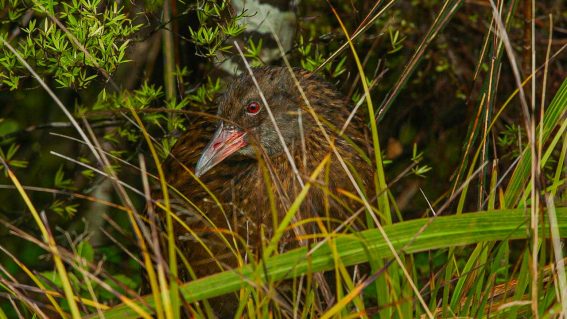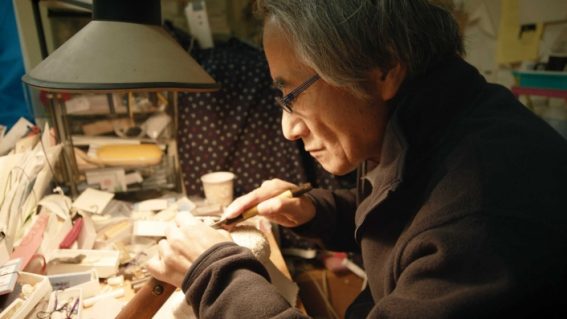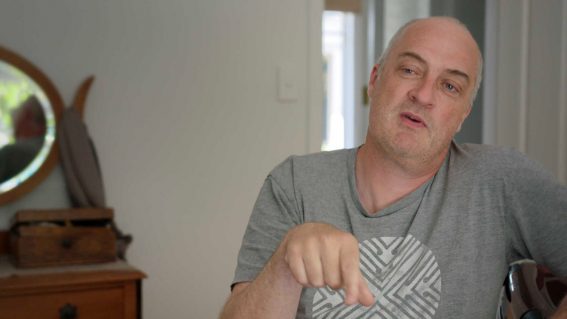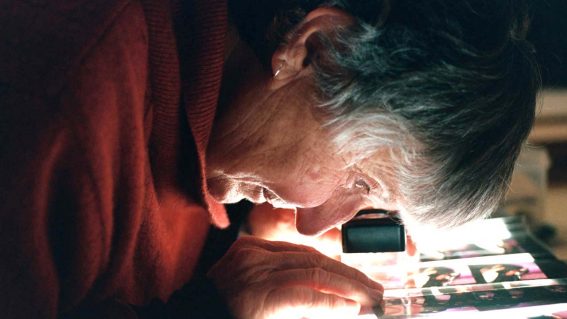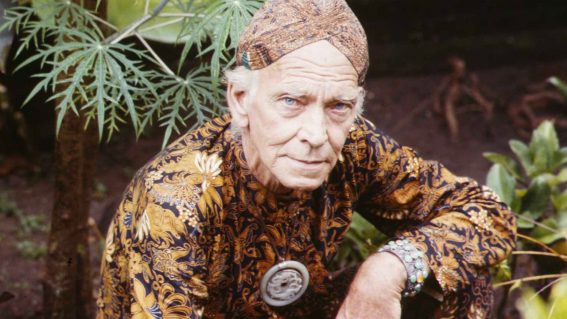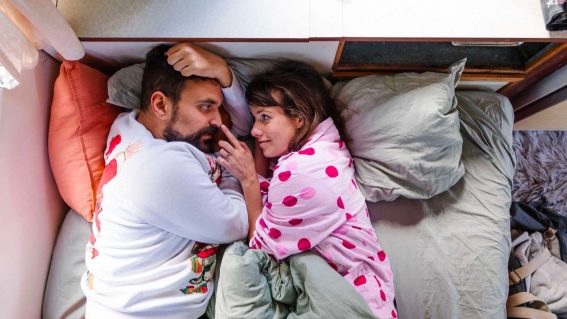NZIFF 2021 Q&A with the directors of short film programme NZ’s Best 2021
Find out more about the six finalists selected by Kerry Fox.
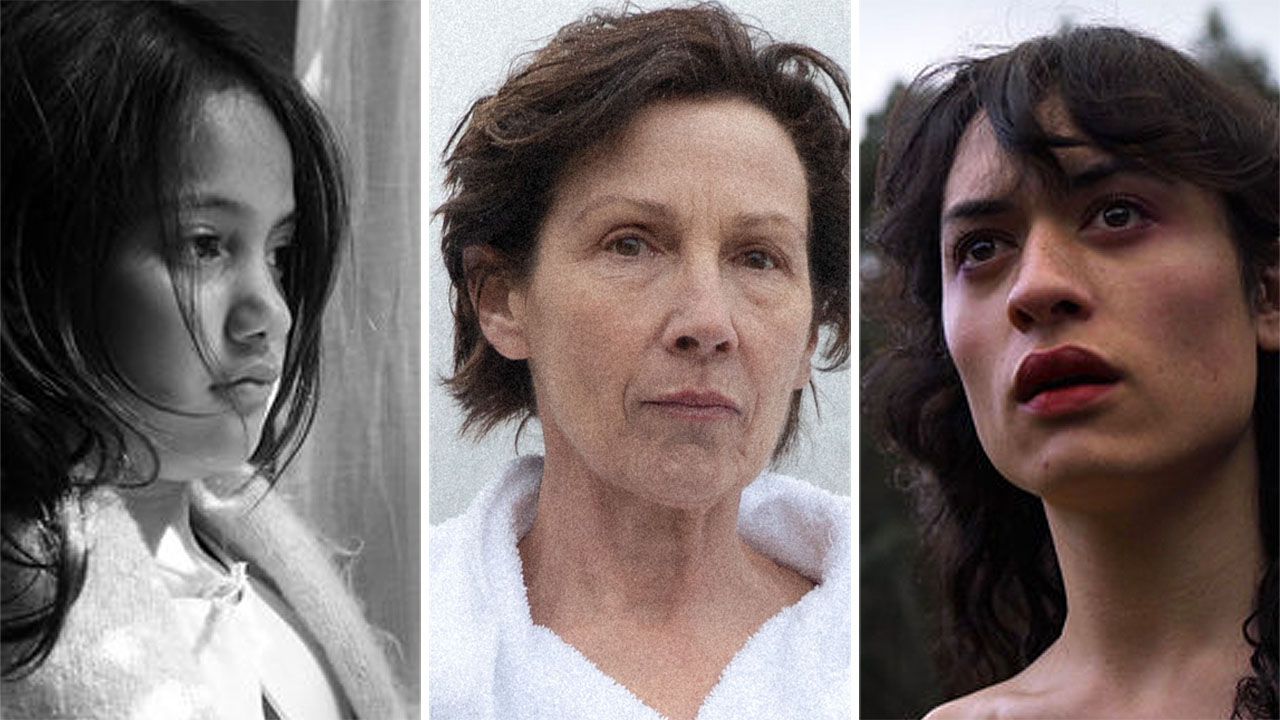
We hear from the directors of New Zealand’s Best 2021.
This year’s NZ Best short film programme at Whānau Mārama: New Zealand International Film Festival features six finalists selected by Kerry Fox from a total of 117 submissions.
The six finalists are in the running for the Vista Group Award for Best Short Film ($7500), the Creative New Zealand Emerging Talent Award ($4000), and the Auckland Live Spirit of the Civic Award ($4000). Audiences at the Wellington screenings will vote for the winner of the Audience Choice Award who will receive 25 percent of the box office from the main centre NZIFF screenings.
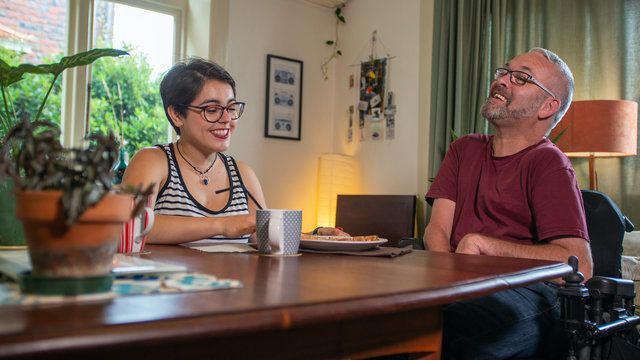
Steph Miller and Paul Wolffram, directors of Only F**ks Pat Me On The Head
FLICKS: Describe the film in EXACTLY eight words
MILLER & WOLFFRAM: A humorous look at life with a disability.
What drove you to tell this story?
Steph and Paul are both attracted to stories and perspectives that are rarely viewed. Different voices and perspectives on screen can generate new empathies and understandings, they make for a more inclusive society. Also, Jon Little, the film’s protagonist has a great sense of humour – he needs it because our society and it’s attitudes aren’t always built to be inclusive. As the film shows, he puts up with a lot of sh*t.
What reaction are you hoping to get from audiences?
The film is great for a good laugh and maybe an opportunity to examine our own assumptions a little.
Can you share your favourite memory during your time making this film?
We both loved shooting the last scene in the film. We had a set full of extras in crazy costumes, the energy and focus from everyone was awesome. Most of our extras were friends of Jon so it was amazing to see them rally round and support the project.
What was the last great film you watched?
Paul loved Rūrangi and it’s definitely on Steph’s watch list!
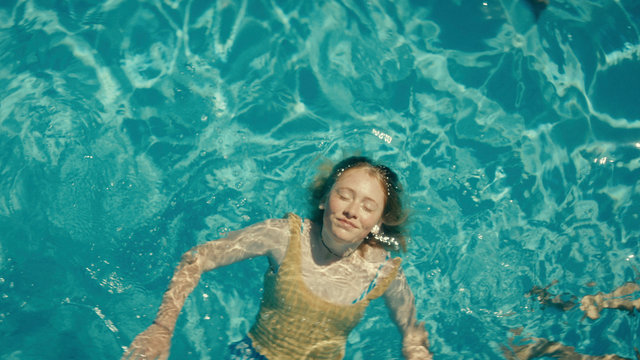
Josephine Stewart-Te Whiu, director of When We Were Kids
FLICKS: Describe your film in EXACTLY eight words
JOSEPHINE STEWART-TE WHIU: A fun day at the pools turns dangerous.
What drove you to tell this story?
I wanted to look at how I could delicately talk about many people’s experiences: when we were kids and coming into our sexuality… and what happens when that gets interrupted.
What reaction are you hoping to get from audiences?
I hope people feel seen and empowered.
Can you share your favourite memory during your time making this film?
We shot entirely on location at Point Erin pools. On the last day of every summer season (before the pools are drained and cleaned), Point Erin opens up their doors for a “dog day”—where dogs can roam free and swim and play together. On our first day of shooting, a very enthusiastic dog came bounding in and jumped straight in the pool. The owner apologised profusely and explained that the dog had been at the pools at the end of last summer. It took three tennis balls and a lot of coaxing to get the dog out. Good times.
What was the last great film you saw?
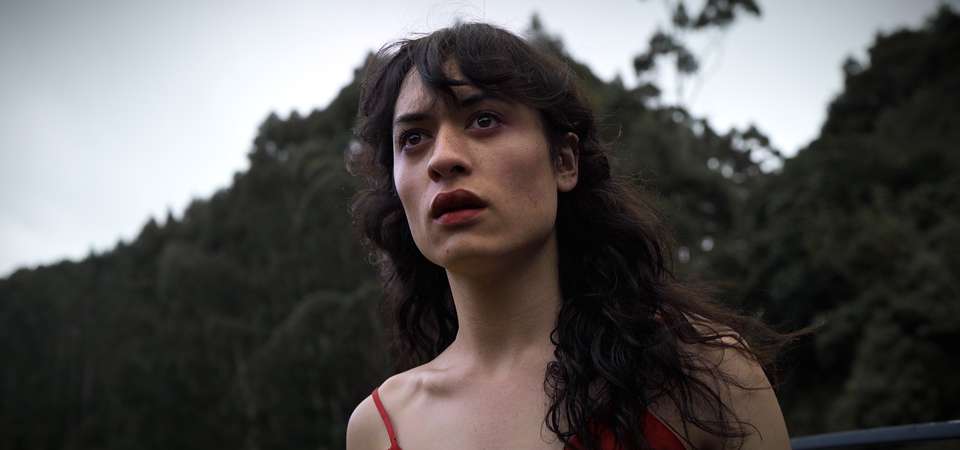
Awa Puna, director of Tūī
FLICKS: Describe your film in EXACTLY eight words
AWA PUNA: Carnal, electric, alluring, clammy, tender, guttural, seductive, deep-rooted.
What drove you to tell this story?
Aside from my utter love for filmmaking, this particular story was inspired by a recent dream I had where I was reunited with my Nan who passed when I was 7. While we hugged, she whispered in my ear that she had always known about me and was proud I had finally found myself. Suddenly, her figure slipped from our embrace like sand through my fingers, and I woke up with a warming closure. I knew even though Nan hadn’t been here to watch me flourish into the Whakawahine (trans woman) I am today, she was watching from above, gifting her unconditional love with a final farewell.
What reaction are you hoping to get from audiences?
I dream viewers will experience the visceral, chaotic journey of Tūī’s internal landscape. How it feels to grieve, to yearn, how it feels to be hurled around by your inner demons. And how difficult those feelings can be to translate out loud. I hope this story questions the prejudice some may carry, or perhaps reflect a similar experience they’ve had themselves or with their loved ones.
Can you share your favourite memory during your time making this film?
It started raining the day we shot in up Maungakotokutoku forest. I remember the moment all my eager filmy mates showed up in their muddied gum boots and dripping raincoats, all downing our plunger coffees before we commenced. To get to the forest, we had to climb a precarious uprooted trunk that allowed us to cross the river. Below us was the unfortunate sight of a cow carcass caught amongst branches, being tugged down river. It felt so treacherous, like we were on some kind of survival challenge. Some of us, including myself in the red silk slip Tūī wears, almost slipped as we crossed the mossy trunk, balancing bundles of expensive gear.
When we finally reached the safety of the dense forest, we all took a big breath and looked at each other. Everyone was so ready and keen to film. It was extremely heart-warming to know that all these artists, all geniuses in their field, had so much faith in this story and were willing to help carry out the vision of it. Everyone committed their full selves to this kaupapa, and it’s $300 self funded budget (mostly spent on coffee, kai and petrol). We were very lucky to have the tight-Knit crew and cast we had.
What was the last great film you saw?
The VVitch by Robert Eggers.
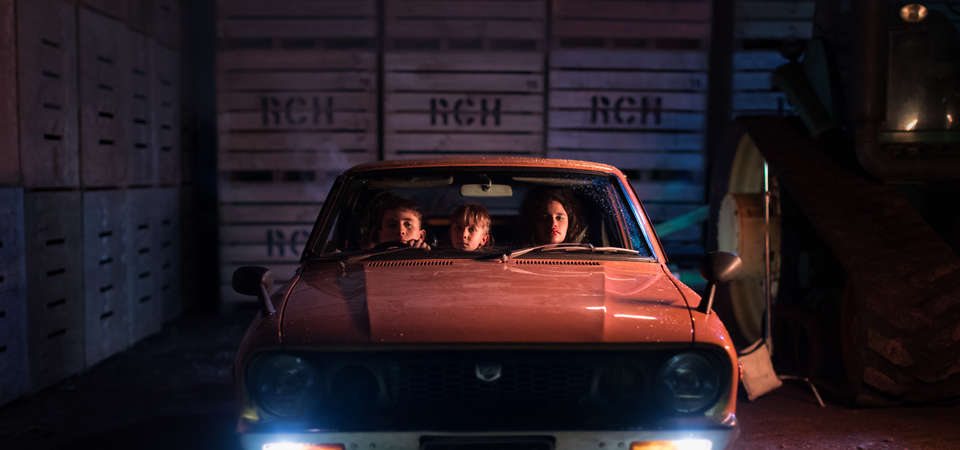
Mark Albiston, director of Datsun
FLICKS: Describe your film in EXACTLY eight words.
MARK ALBISTON: Fast cars, fury, friendship, love, loss and discovery.
What drove you to tell this story?
I wanted to make a film about the lives around me. I’ve seen teenage years twice now, as a teenager myself and now as a Dad with teens. It’s a time when you reach out for recklessness instead of reason which can lead to explosive situations. I keep discovering that the truth often sits under a number of layers—what you see is never what’s going on.
What reaction are you hoping to get from audiences?
I hope they feel their own teenage energy and see some part of themselves or people they know. And how actions are so often connected to an underlying reality.
Can you share your favourite memory during your time making this film?
I really enjoyed seeing the cast read the script for the first time. They couldn’t wait to read the ending. They saw themselves in it, they felt for the characters they were playing and thought the story was about them. Then they asked me if they were really gonna smoke pot, drive fast and swear.
What was the last great film you saw?
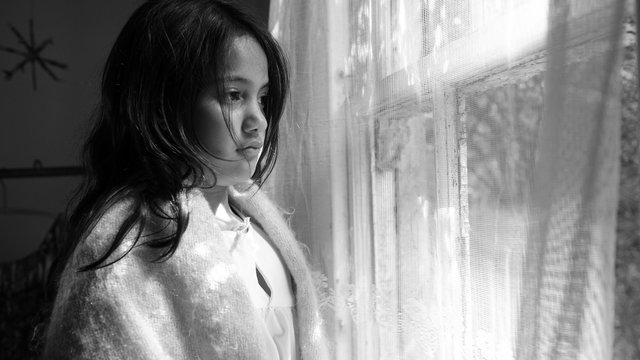
Kath Akuhatu-Brown, director of Washday
FLICKS: Describe your film in EXACTLY eight words
KATH AKUHATU-BROWN: How the ordinary can be made extraordinary.
What drove you to tell this story?
In the 1960s, a book called Washday at the Pa was published and, though removed from circulation, its impact was felt beyond that. The images in the book are beautiful and were shot in the small community I was raised in. I remember my father talking about it and the lack of context in it. When he died a few years ago, I decided that I’d honour him by putting a Ngati Porou Māori lens and filter over images from the 1960s, putting context and tikanga into the story.
What reaction are you hoping to get from audiences?
Well, I’m hoping an audience enjoys it.
Can you share your favourite memory during your time making this film?
There were many but I remember when we were location scouting, my team were exhausted from the travel to Ruatoria from Wellington and Auckland, and then a further 25 mins to the house I wanted to shoot in. Beside the house is a river and they insisted we should shoot there. I protested until Fred Renata, our DOP, asked why I was so against it. I told him it was because my mother told me never to swim in that river. The team immediately started looking elsewhere, no further discussion needed.
A few weeks later and the day before the shoot a major storm hit the East Coast. That river was a ferocious flood and really dangerous. Grateful we had chosen elsewhere, I remembered Fred’s words after he asked me during that scout—we should always listen to our mothers.
What was the last great film you saw?
I went to the premieres of Coming Home in the Dark recently and Cousins when it came out. Both films were powerful in their own ways. Cousins spoke to me of the love and struggles Māori women have endured and are enduring. Coming Home in the Dark is dark and unrelenting, interrogating the consequences of what happens when we look the other way.
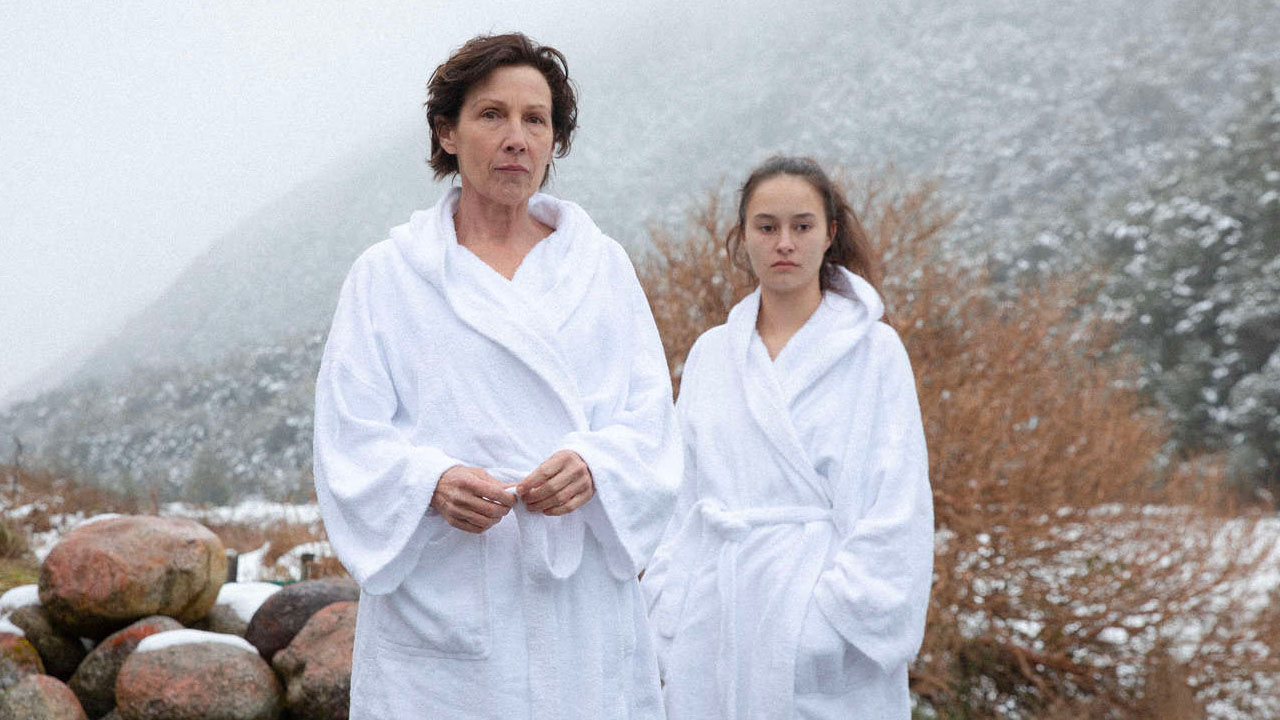
Lucy Knox, director of Hot Mother
FLICKS: Describe your film in EXACTLY eight words
LUCY KNOX: Mothers, Daughters, Steam, snow, day spas, Celine Dion.
What drove you to tell this story?
I wrote this whilst on a family holiday, which caused me to reflect upon my relationship to my family as a teenager. When reflecting about this experience with friends, I realised a lot of us held guilt over the way we treated our parents as moody teenagers. I wanted to create a film that explored a mother-daughter dynamic, filled with teenage tempestuousness.
What reaction are you hoping to get from audiences?
I just hope they enjoy the world, and the performances from our amazing cast. And maybe some mothers and daughters will resonate with the relationship.
Can you share your favourite memory during your time making this film?
There are a lot of things that went wrong in the making—that were kind of nightmares at the time—but now I look on them fondly. One of the best was when we flew from Auckland to Christchurch to shoot the film. As we arrived, the only access road to our location became snowed in, and closed to cars. We had so much riding on getting to our location asap to start shooting, but we just couldn’t.
My amazing producers Evie and Bill found last minute accommodation and meals for all our crew at a nearby town. There was just one road worker guarding entry to the road in his truck. He gave us his mobile number to text us if the ice melted so we could pass, and he was messaging us late into the night with sleet updates. He was also watching Skins season one on his laptop in the truck, so we ended up texting him a lot that night about Cassie and Sid and Skins season one plot developments.
What was the last great film you saw?
The Power of the Dog. Jane Campion is incredible. She’s such an inspiration.








